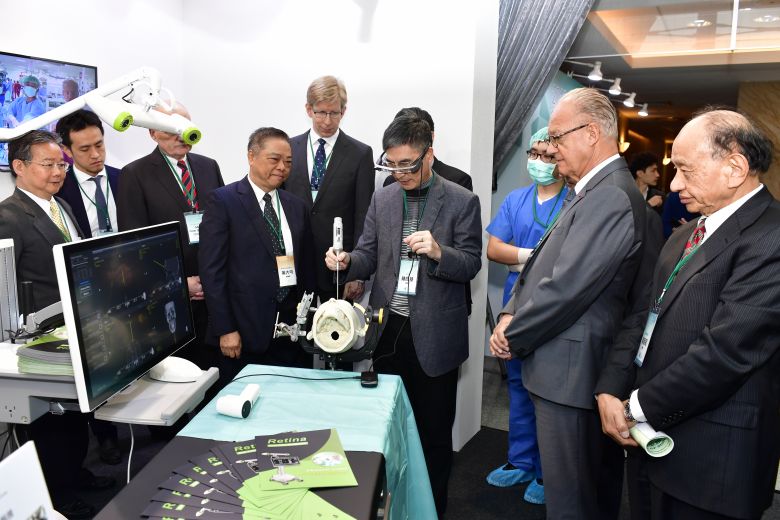Medical companies showcase ‘smart’ surgical machines
Several Taiwanese businesses yesterday showcased their “smart” surgical technologies at a forum in Taipei that was attended by about 200 medical experts from around the world.

Several Taiwanese businesses yesterday showcased their “smart” surgical technologies at a forum in Taipei that was attended by about 200 medical experts from around the world.
The forum, titled “Future of Surgery,” was hosted by the Ministry of Science and Technology’s Biomedical Development Board and the Central Taiwan Science Park, and co-organized by the Institute for Research on Cancers of the Digestive Tract (IRCAD) Taiwan.
The nation’s medical device sector last year generated revenue of about NT$146.3 billion (US$4.99 billion), which is nearly 30 percent of the biomedical industry’s total revenue and the second-largest after the social welfare sector’s NT$162.5 billion, ministry data showed last month.
The ministry has been working to promote the integration of local brands and the industrial innovation of businesses, Minister of Science and Technology Chen Liang-gee (陳良基) said during a speech at the forum’s opening.
IRCAD France chief executive officer Jacques Marescaux, Visible Patient president Luc Soler and other executives from companies including Siemens Healthineers, Intuitive Surgical and Karl Storz also addressed the trends affecting the global medical device industry.
EPED Inc (醫百科技) presented a real-time navigation system for brain and craniofacial surgery. The system, called Retina, allows a surgeon to quickly and precisely find abnormal tissues in the brain.
By using the system’s augmented reality goggles to peer into patients’ bodies, surgeons would not be distracted by having to look at endoscopic monitors, company sales engineer Casey Lee (李耿直) said, adding that the system is being used at Kaohsiung Medical University.
Evolve Development Co (進化開發) showcased its “smart medicare service cloud,” which integrates medical service and hospital registration devices and TV broadcasts on a tablet computer, allowing medical personnel to understand patients’ needs before visiting them.
The company aims to develop “smart” hospital beds with multiple functions, company general manager Eric Lee (李元甫) said, adding that a trial version of the system has been installed at Chung Shan Hospital and the Central Clinic and Hospital in Taipei.
The firm is not planning to produce service robots as they lack the human “warmth” that is the essence of medical care, it said, but added that it might develop robots to help convey medicines in hospitals.